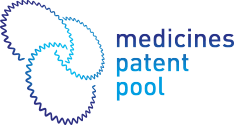Aibar Sultangaziev
30 July 2019
Aibar is the director of Partnership Network, a national level organisation that works for access to treatment for people with HIV, hepatitis C and tuberculosis in Kyrgyzstan.
The Partnership Network works on a range of activities including negotiations with pharmaceutical companies for medicine availability and affordability. They also engage in updating clinical guidelines and promoting price reduction for a number of mechanisms.
With Kyrgyzstan slowly switching to a State drug provision system, dolutegravir was included in the Essential Medicines List in Kyrgyzstan, where Aibar’s organisation played an important role in the process. “Starting from September last year, people started to receive Dolutegravir. As of now, there are around 320 people on standalone Dolutegravir. Not yet on the TLD combination (tenofovir/lamivudine/dolutegravir) but they have Dolutegravir in their regimens. There were plans to have around 2,000 people on TLD by the end of the year.”
“Of course, people are happy that they’re being switched from efavirenz-based combinations to dolutegravir. Judging by the responses we have from people, they have considerably fewer side effects. Almost none at all. They are particularly happy about the fact that they’re not bound to the previous evening regimen.”
“Almost everyone now wants dolutegravir, but we are trying to make this transition period gradual. Some people still are stuck with the combination containing efavirenz, emtricitabine and tenofovir. But overall, people are happy that it’s a better regimen in terms of side effects. It’s much more convenient to take, and people are very much looking forward to receiving TLD, the once-daily pill containing dolutegravir.”
Speaking of some of the keys challenges, “one is the price of TLD that is currently being offered. We need to have two or three generics on the market in Kyrgyzstan to bring the price down further to a more competitive level. We are currently revising our treatment guidelines, and we’ll have them ready in September this year. We will include TLD as a preferred treatment regimen. By 2020, we’re expecting to have 80% of people on TLD.”







